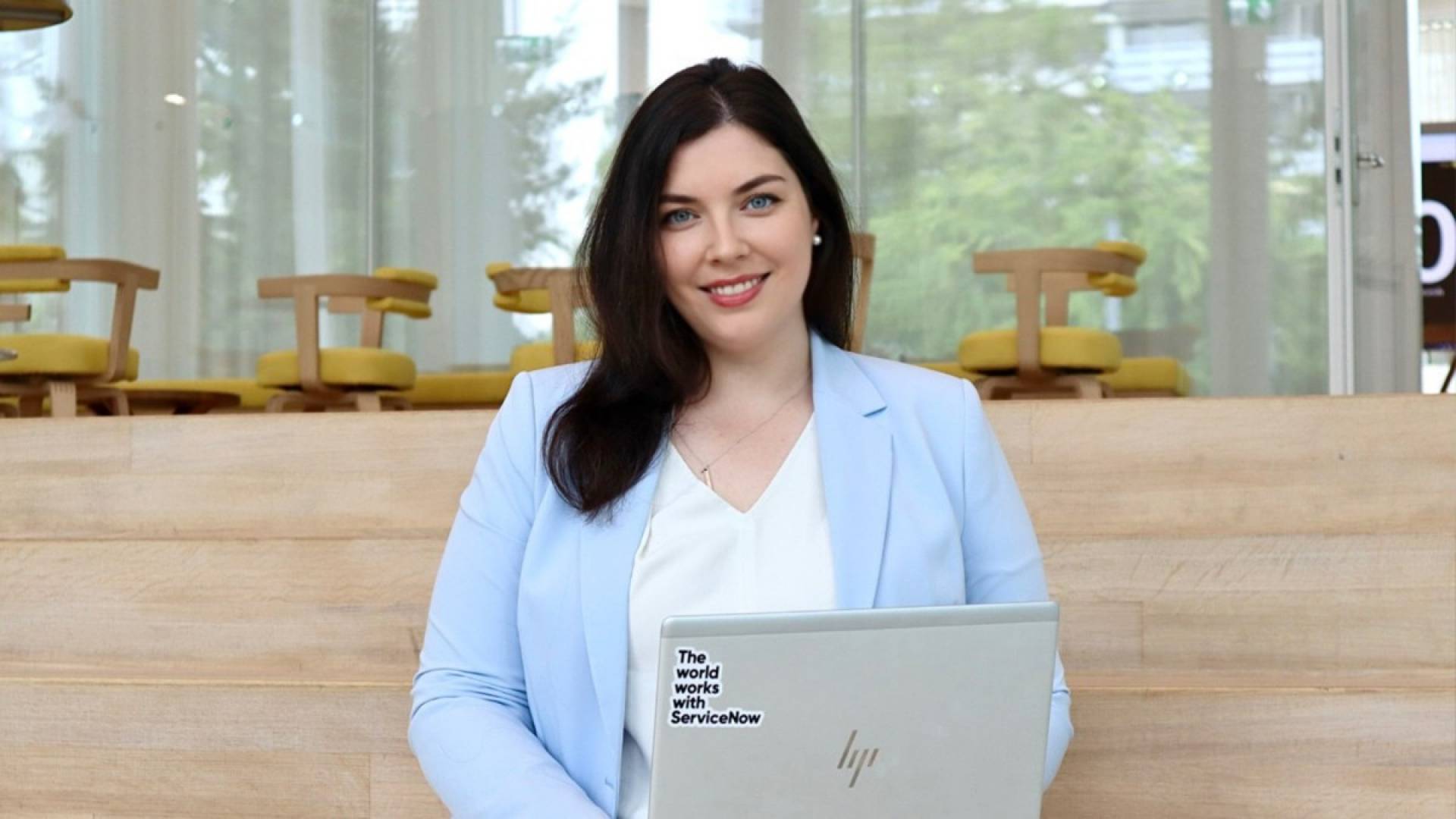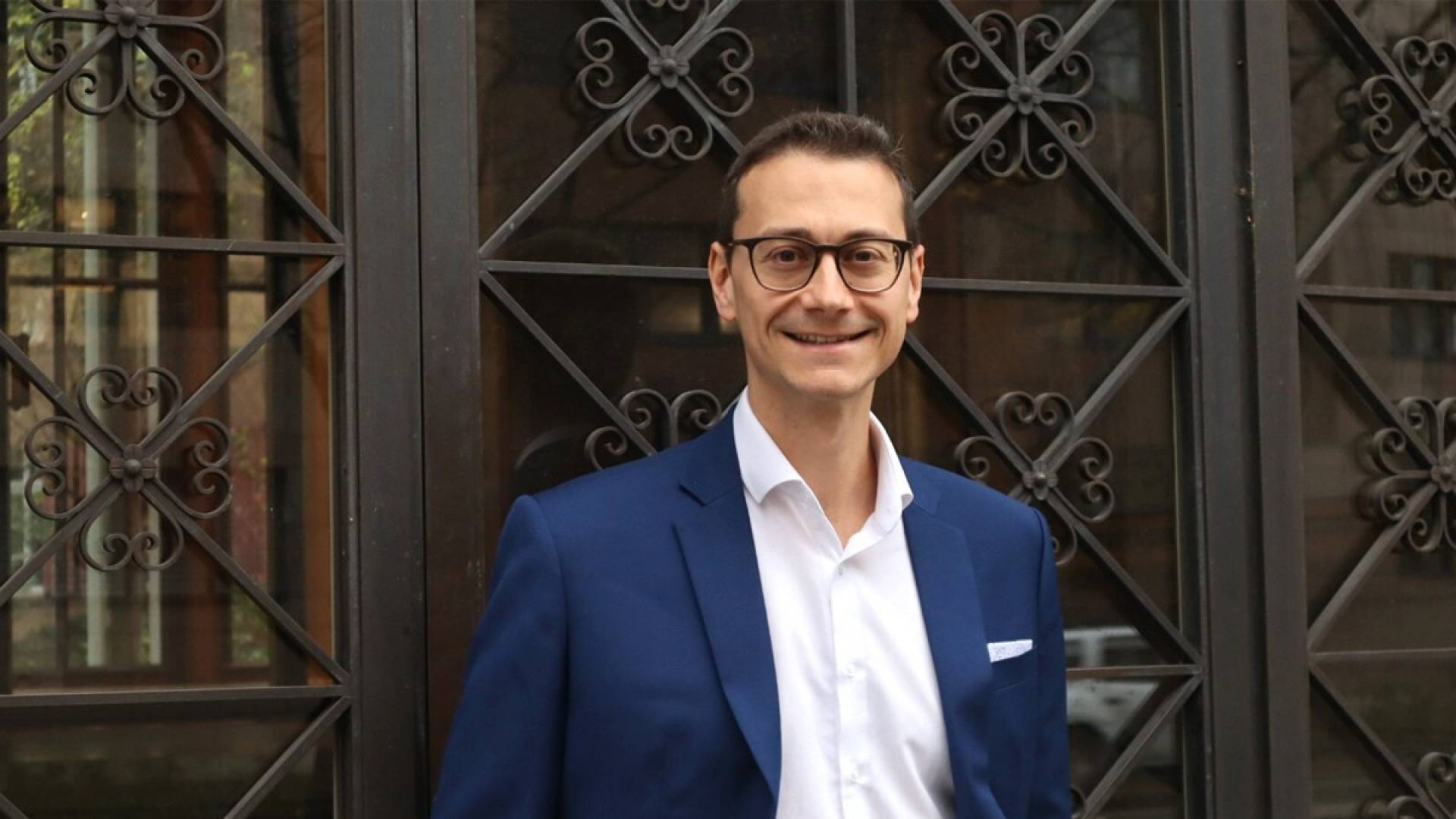«We must radically simplify our IT.»
22 March 2019, text: Employer Branding, photo: Helvetia

Who are you and what do you do at Helvetia?
My name is Fabio Attili and I’m the Core Operation & APM team leader. We ensure the smooth operation of the servers and applications.
How did you get where you are today?
I've been at Helvetia for just under six years. I started off as a software developer in IT. Two years later I began running IT projects and then two years ago I took on a management role as team leader of Core Operation & APM.
Can you tell us what your job is and explain what you do in just a few words?
We make sure that the users don't have any problems with the systems, that the systems function and that people are able to operate them. If this is not the case, we try to get the applications up and running again as quickly as possible. We also analyse the application response times. This enables us to quickly and proactively identify bottlenecks and to seek improvements.
What is interesting or challenging about your job?
The variety of subject areas/specialist units we deal with. It's an incredibly wide spectrum, which is why we have such a large team. A big challenge right now is change in the future, digitalization, all the cloud solutions and how to integrate these into the Helvetia landscape.
What does &Go mean for you in your day-to-day work at Helvetia?
We try to do things differently in our day-to-day work and to explore new avenues. In IT, people often end up working in «silos», closed away from others. We need to ensure that we do not do that, and that IT operations and development work much more closely together. We can then eliminate bottlenecks and provide services more quickly.
Why is &Go important and right for Helvetia?
It’s important to explore more avenues, to eliminate bottlenecks and to radically simplify our systems. Part of the problem is that in recent years IT has often done whatever specialist units have demanded of it, without any critical evaluation, which means that we now have a burgeoning landscape of systems and tools. We often use the word «Helvetianize» around here. Time and time again we have Helvetianized applications, that is adapted them to Helvetia, rather than utilizing them as standard, which would have made many things easier. To improve this situation in the future, IT will have to mature further so that it can present itself as a competent partner to the specialist units.
If people want to work with you, what must they contribute?
Something that I think is really important, and which I also believe is part and parcel of &Go, is that every employee needs to have a sense of personal responsibility and to contribute their own ideas. There are a lot of things in place at Helvetia to work toward this, e.g. leadership training. The classic boss-employee relationship, in which the boss says something and the employee does it, shouldn’t so often be the case nowadays. In IT, it's sometimes no longer even possible, as it's such a complex landscape that the boss no longer knows everything. And that’s exactly why people need to learn to take personal responsibility and to act independently.
What must your area be or become if &Go is to be put into practice?
As I mentioned earlier, it has to be simplified, the systems have to be standardized and less Helvetianized – and every employee needs to assume personal responsibility in his or her role.
Workreallysmart@helvetia: The new world of work and Helvetia – for you how does that go together
In IT operations, opinions are divided on the subject of working from home. Some people are for it and others against. In my opinion it depends on the work you need to do, as not all tasks lend themselves to working at home. In this day and age I also think the concept of job sharing makes sense, as it makes Helvetia an attractive employer. I have just done two job interviews, and both of the candidates said they thought it was important to have the flexibility to set their own working hours.
What is exciting about insurance IT?
I don't think that there is a particularly great difference between the challenges of insurance IT and, for example, banking IT, as we don't actually develop any systems, we just operate them. What is challenging and exciting, though, is helping to shape and control the changes that digitalization will bring – the integration of the cloud.










